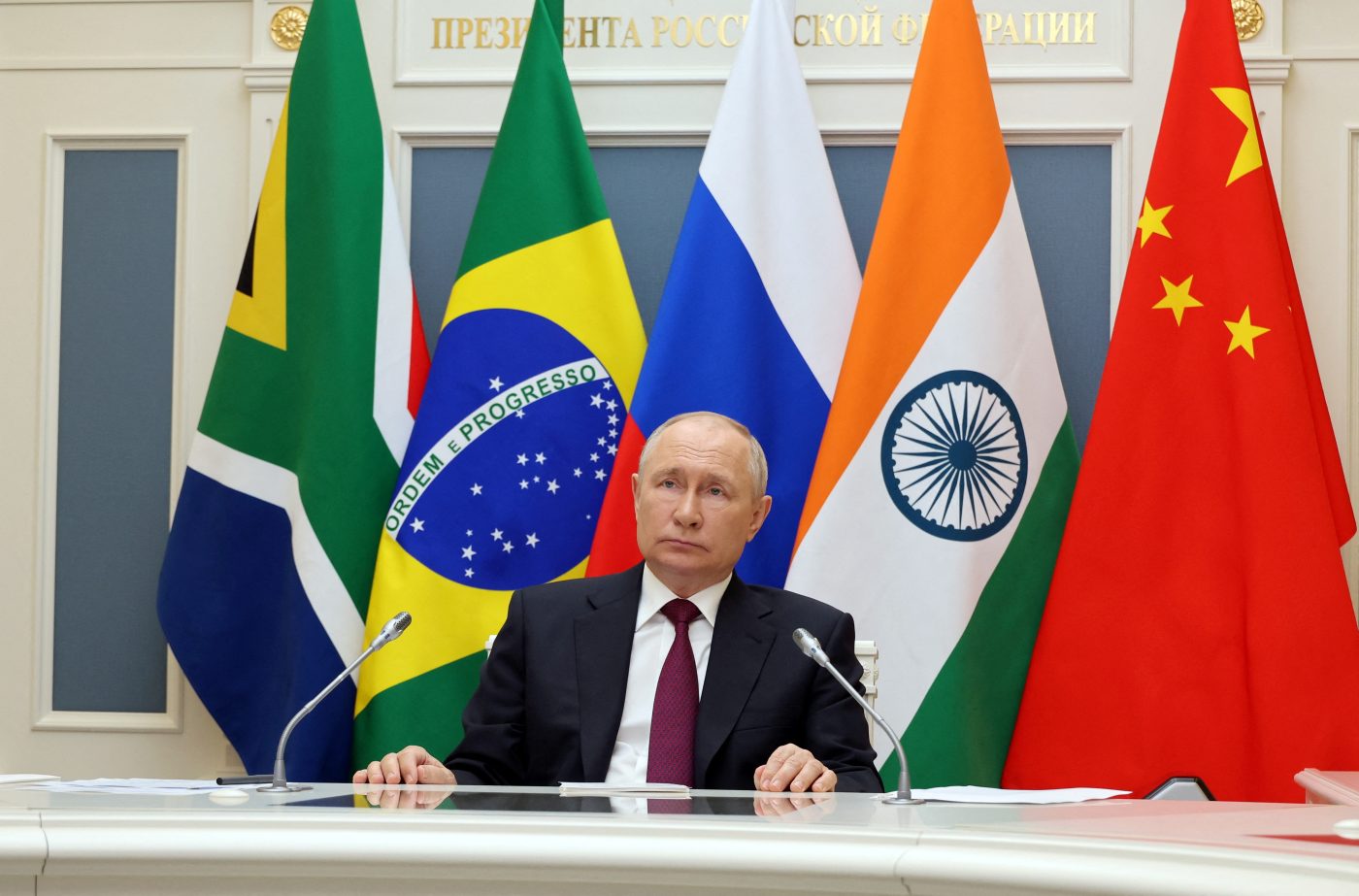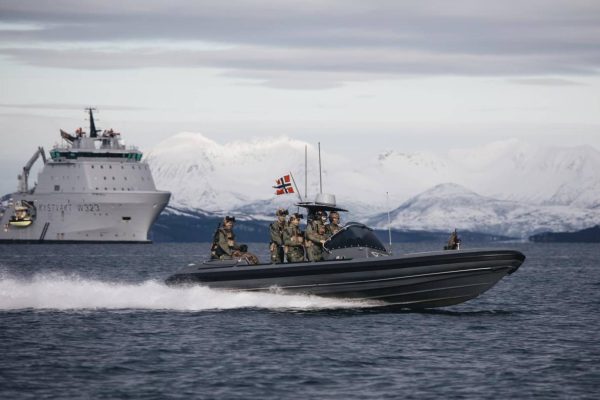The new BRICS members — Iran, Saudi Arabia, Egypt, the UAE, Ethiopia, and Argentina — were presented as significant additions by Russian President Vladimir Putin, who claimed the expansion signaled a crucial step toward “a new multipolar world order,” the phrase he uses to imagine a world freed from the shackles of US dominance.
While the bloc “stands opposed to no one,” he argued during the August meeting, the expansion is clearly imagined as a challenge to the collective West.
And yet.
The new members very clearly contain some hostile to the US (Iran) or dissatisfied by their relationship with Washington (Saudi Arabia) and even those seeking to exploit what they see as new opportunities to play off the US with others like China (the UAE).
However, the addition of new countries with little in common in values, governance, or stance towards the West makes the transformation of an economic bloc into a political powerhouse less likely, not more.
With Russia’s own influence within the bloc declining precipitously — its wealth and strength bleeding into the battlefields of Ukraine while its economy became the most sanctioned in the world — its ability to bring about its vision for a new world order is just as distant now as before the expansion.
Established as a formal institution in 2009, BRIC (now BRICS with the addition of South Africa) was conceived as a consortium of rapidly developing economies. Over the years, it has given birth to two principal financial instruments: the New Development Bank, a counterpoint to the World Bank, and the Contingent Reserve Arrangement, an International Monetary Fund equivalent. However, the collective economic impact has been modest at best. While India and China have continued their growth trajectory, Brazil and Russia have struggled to recover from the 2014 commodity shock. Meanwhile, South Africa has ceded its position as Sub-Saharan Africa’s dominant economy to Nigeria. Seven years after the establishment of BRICS, trade among most members had declined.
The dynamics within the bloc are increasingly complex and strained. India, its fastest-growing member, is positioning itself as a counterbalance to China, a rivalry exacerbated by profound suspicions between the two, which descended into bloody border clashes in 2020.
The flashpoints between the two countries are numerous. Troops fought hand-to-hand battles in the towering mountains, forming their mutual frontier again in 2022, and in recent weeks, India joined other countries in protesting against the new and expanded version of China’s official map. The document showed parts of several foreign countries included within China.
The Communist party then told everyone to calm down while making things far worse by canceling Xi Jinping’s presence at the forthcoming G20 meeting in Delhi. Unnamed sources told Reuters this was China’s response to the dispute.
In Brazil, meanwhile, under the Workers’ Party leadership of President Lula da Silva, the party’s popularity has cratered even as the government cultivates ties with Russia and China. Relations with neighboring Argentina are currently largely benign, but joint relations are always open to renewed rivalry.
Their relationship, in some ways, augurs what might work for an expanded BRICS. Countries seeing themselves as dispossessed or mistreated by history, or just the post-World War II order, might put aside their differences to find common ground once tiresome issues like fair elections and systematic torture are off the agenda. That would suit China, Russia, and Iran very well indeed. A new global dawn would see trade expand and the democratic world bow to a new and uncomfortable reality
But BRICS is ideologically heterogeneous. Is the concept of “counter-hegemony” — a belief that liberal democracy is not a universal ideal but a tool for Western imperialism — enough to hold them together? At the summit, Putin, Xi Jinping, and special guest Nicolas Maduro of Venezuela all railed against this supposed hegemony, proposing instead a multipolar world attuned to regional nuances. Yet, the governance model they advocate boils down to various flavors of authoritarianism.
Contrast this with NATO, an organization described by Russia as existing solely to counter its influence. The difficulty for global authoritarianism is that the (soon to be) 32 NATO members share a broad consensus on values, governance, and economics — precisely the cohesion that BRICS lacks. Even as the authoritarian leaders of the expanded BRICS grow weary of Western hectoring on human rights, many, like Egypt, Saudi Arabia, and the UAE, continue to maintain strong bilateral ties and unspoken dependency on the United States (if the UAE comes under sustained attack, would it call Beijing or Washington?)
So, while the summit offered nebulous calls to move away from the US dollar and even a shared currency, there was no concrete economic strategy. There’s little to recommend these ideas to major American trading partners in the Middle East, and especially not to Argentina, whose leading presidential candidate has proposed adopting the American dollar. Far from presenting a united front, the new BRICS formation appears more like a motley assortment of trading partners, several of whom are firmly pro-Western. How, then, will it differ from the Cold War-era Non-Aligned Movement, which now numbers 120 members, but whose influence is very questionable?
The expansion of BRICS will dilute rather than strengthen Russia’s aim to make politics out of trading agreements. Maybe, one day, the globally grumpy will create a new organization led by China and dedicated to re-making the world. But this isn’t it.
Ben Dubow is a Nonresident Fellow at CEPA and the founder of Omelas, which tracks authoritarian influence online.
Europe’s Edge is CEPA’s online journal covering critical topics on the foreign policy docket across Europe and North America. All opinions are those of the author and do not necessarily represent the position or views of the institutions they represent or the Center for European Policy Analysis.





